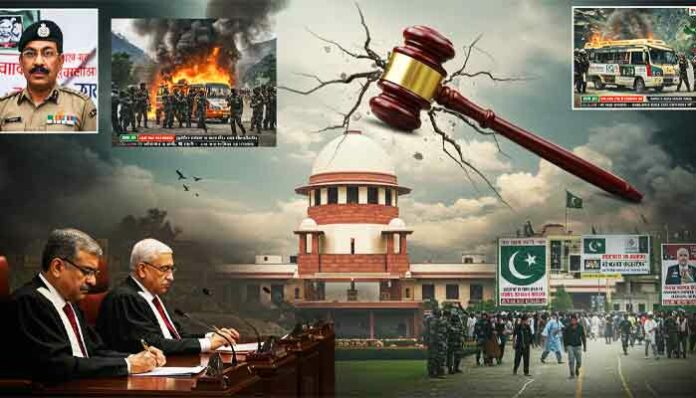Court Pahalgam Attack Decision
Indian media reported on Thursday that the Supreme Court of India has dismissed a petition that called for a judicial probe into the recent Court Pahalgam Attack Decision, a popular tourist destination in Jammu and Kashmir. The attack, which occurred in the Indian-administered region of Jammu and Kashmir, had raised concerns about security in the area.
The petition, filed by concerned citizens, sought the formation of a judicial commission to investigate the circumstances surrounding the incident and to hold accountable those responsible. However, the Supreme Court rejected the request, signaling that no formal inquiry would be conducted into the attack.
The Pahalgam Attack
A violent attack took place in the calm town of Pahalgam, leaving 26 people dead, most of them tourists. This heartbreaking incident has added to the growing tension between India and Pakistan.
As per reports, the Supreme Court rejected the Public Interest Litigation (PIL), raising concerns that such legal actions could erode the morale and confidence of the armed forces.
A bench led by Justices Surya Kant and N. Kotiswar Singh stated, “This is a critical moment. Avoid making any request that could undermine someone’s morale. Please be mindful of the sensitivity of the matter.”
The bench reminded the petitioners of their duty to the nation, saying, “Is this the proper way to handle the situation? Please think it through. When, then, did a retired High Court or Supreme Court judge become an authority on such matters? We won’t be considering this. You may take it to another platform if needed.
The court granted Fatesh Kumar Sahu, the petitioner, permission to withdraw his plea in person.
Call for Special Investigation Team (SIT)
This petition, submitted by three residents of Jammu and Kashmir—Mohammad Junaid, Fatesh Kumar Sahu, and Vicky Kumar—called for the formation of a Special Investigation Team (SIT) to ensure accountability for the attack. It also urged the central government and the Union Territory administration to take immediate action to protect future tourists.
Earlier, Lieutenant General Ahmed Sharif Chaudhry, spokesperson for Pakistan’s military, accused India’s ruling Bharatiya Janata Party (BJP) of orchestrating fake attacks to sway voters and secure an advantage in the upcoming elections.
Pakistan’s Skepticism Over India’s Swift Response
At a press conference alongside Deputy Prime Minister and Foreign Minister Ishaq Dar, the DG ISPR emphasized that, once again, incidents like the Court Pahalgam attack decision illustrate a familiar pattern by India—blaming Pakistan without evidence in an attempt to shape political discourse ahead of elections.
The DG ISPR expressed skepticism over the speed of India’s reaction to the Pahalgam incident, noting the series of events that seemed to indicate a premeditated strategy.
Quick Blame Despite Distance
The Court Pahalgam attack decision, roughly 230 kilometers from the Line of Control (LoC), quickly gained attention. Nevertheless, Pakistan was swiftly blamed, despite the implausibility of making such a quick connection to the incident.

